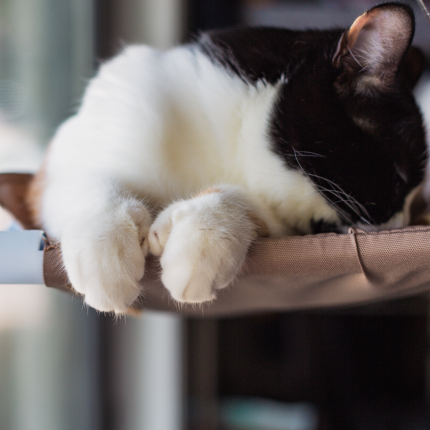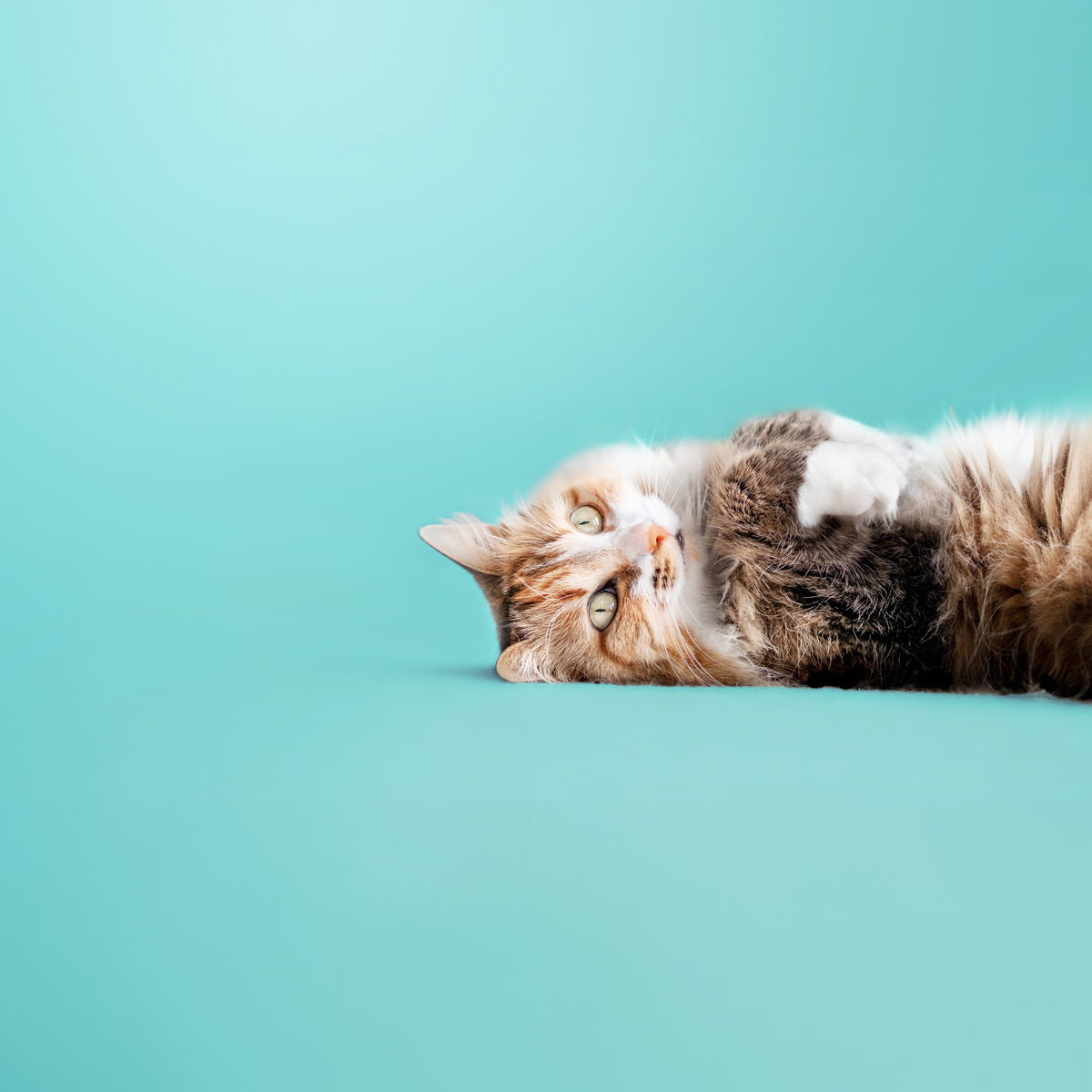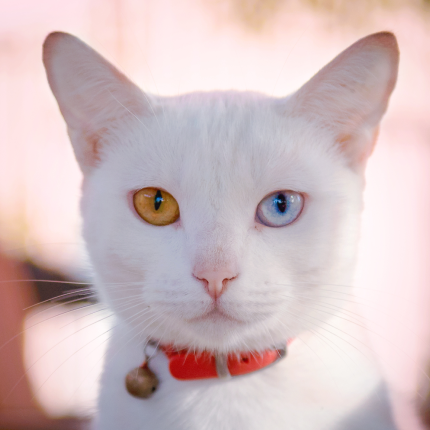Do Cats Inherit Genetic Diseases?

Like humans and other animals, cats can be susceptible to genetic diseases. While they can occur in any cat, certain health conditions are more commonly seen in purebred cats due to the selective breeding practices employed. Inbreeding, which is often used to maintain specific breed traits, can also lead to the inheritance of genetic disorders. While some of these conditions may become apparent at birth, others may not show symptoms until later in life.
advertisement
Here are some of the most common genetic disorders in cats:
1. Polycystic Kidney Disease (PKD)
Polycystic Kidney Disease is a hereditary condition characterized by the development of numerous large cysts in the kidneys. Over time, these cysts can lead to kidney failure. Breeds that are more prone to PKD include Persians, British Shorthairs, Exotic Shorthairs, Ragdolls, Devon Rexes, and Birmans. Common symptoms of PKD include increased thirst and urination, weight loss, and lethargy. However, these signs often don’t appear until the cat reaches middle age, which can make it difficult to know if a younger cat carries the gene without genetic testing.
2. Hypertrophic Cardiomyopathy (HCM)
Hypertrophic Cardiomyopathy is the most common heart disease in cats, causing the heart muscle to thicken and impair the heart’s ability to contract effectively. This condition can lead to sudden death or heart failure, especially if left untreated. Breeds at higher risk for HCM include Maine Coons and Ragdolls, both of which have been found to have a genetic mutation linked to the disease.
3. Spina Bifida (Manx Syndrome)
Manx cats are well known for their distinctive short tails, a feature caused by a genetic mutation. However, the shortened tail can also cause spinal issues such as spina bifida, a condition where part of the spinal cord does not develop properly. This condition may result in urinary and fecal incontinence, difficulty moving, or even paralysis of the back legs. The condition is a direct consequence of the Manx breed’s taillessness and can be severe in some cases.
4. Osteochondrodysplasia (Scottish Fold Disease)
Scottish Folds are famous for their unique folded ears, but this trait is the result of a genetic mutation that affects cartilage development throughout their body, not just their ears. This mutation leads to poor bone development and severe, crippling arthritis. Often, affected cats experience these symptoms at a young age, and the condition can lead to long-term pain and mobility issues.
5. Congenital Deafness
Deafness is a genetic condition that affects some cats, particularly those with white coats and blue eyes. This condition can cause partial or complete deafness, and it is more likely to affect both ears. The syndrome is congenital, meaning it is present from birth and is linked to a genetic defect that affects both coat color and ear development.
6. Hypokalemic Myopathy
Hypokalemic Myopathy is an inherited condition that causes muscle weakness and neck bending, commonly seen in Burmese and Tonkinese cats. This disease can cause episodes of severe weakness, seizures, or the inability to lift the head, with the chin often tucked down to the chest. Treatment typically involves potassium supplementation, but managing the condition can be a long-term process.
7. Other Genetic Conditions
Certain breeds also show strong genetic predispositions to other conditions. Though the specific genetic mutations may not yet be identified, these diseases are often more common in particular breeds:
- Diabetes – Burmese Cats, Norwegian Forest Cats
- Lymphoma and Small Intestinal Adenocarcinoma – Siamese Cats
- Feline Lower Urinary Tract Disease – Persian Cats
- Asthma – Siamese Cats
- Strabismus (cross-eyed or squinting) – Siamese Cats
- Spinal Muscular Atrophy – Maine Coons
You can find a comprehensive list of genetic conditions affecting cats, as well as other species, on the OMIA (Online Mendelian Inheritance in Animals) website.
How Can We Manage Genetic Diseases in Cats?
The most effective way to manage genetic diseases is to ensure that affected cats are not bred. This helps reduce the chances of passing on the genetic condition to future generations. Many breeds are purposely bred to emphasize specific physical traits, but unfortunately, these traits often come with genetic issues that affect the cat’s health and welfare.
Before acquiring a cat from a breed prone to genetic diseases, it’s crucial to conduct thorough research. Always purchase from a reputable breeder who tests their breeding cats for genetic conditions. Ensure that both parents of the kitten have been tested and are clear of the specific genetic mutations linked to the condition.
advertisement
Final Thoughts
Genetic diseases in cats are more common than we may realize, especially in certain breeds. While not every cat will develop a genetic disorder, prospective cat owners need to be aware of the health risks associated with specific breeds. Regular vet checkups, early diagnosis, and responsible breeding practices are essential to managing these genetic conditions and ensuring a long, healthy life for your feline companion. If you’re unsure about the health risks associated with a particular breed, consult your veterinarian for advice and guidance.

Featured Articles

Polydactyl Cats: Just More Beans to Love
Polydactyl cats have become extremely popular in recent times. As a result, more and more people are interested in learning more about this six-toed cat and want to get one of their own. If you are a cat lover intrigued by polydactyl cats, you have come to the right place….

Why Do Cats Roll Over Into Their Backs But Not Let You Touch Their Bellies?
It’s common knowledge dogs love to have their tummies rubbed when they freely lay down before you and roll onto their backs. But, if you’re also familiar with cats, you know that when they roll onto their backs with their bellies exposed, rubbing the belly will most likely result in…

The Odd-Eyed Cat (AKA Heterochromia)
Cats are already beautiful and fascinating creatures, but people are bound to take notice when they have something as captivating as two different colored eyes. Odd-eyed cats always have one blue eye paired with either a green, yellow, or brown eye. This form of heterochromia occurs in other animals, including…